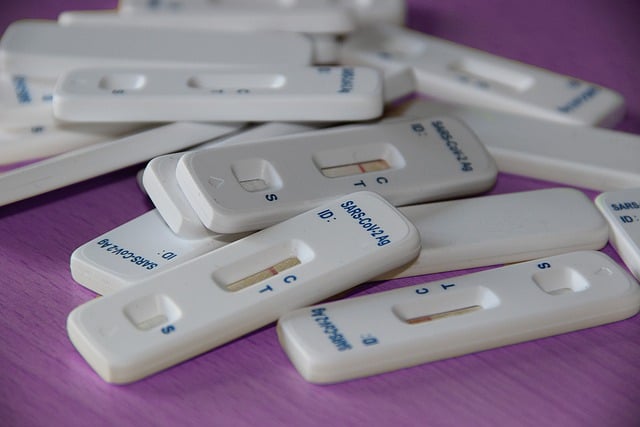In the UK, advanced liver blood tests play a crucial role in diagnosing and managing Iron Deficiency Anemia (IDA). These tests go beyond standard metrics like hemoglobin by measuring enzymes, bilirubin, albumin, and prothrombin time, helping specialists uncover underlying causes. Low iron levels indicate potential IDA, leading to tailored treatments including dietary changes or supplements. Regular follow-up blood tests monitor progress, emphasizing the vital role of advanced liver blood tests in UK healthcare for effective IDA management.
“Iron deficiency anemia, a common yet serious condition, affects millions globally. Understanding its impact on overall health is crucial. This guide delves into the diagnostic process, highlighting the role of advanced liver blood tests in identifying iron deficiency anemia.
In the UK, these comprehensive assessments go beyond standard measures, providing insights into potential liver issues and nutrient deficiencies. By interpreting results accurately, healthcare professionals can prescribe appropriate treatments, ensuring optimal patient care.
From awareness to post-test management, this article offers a holistic view, empowering individuals to take charge of their health.”
- Understanding Iron Deficiency Anemia and Its Impact
- The Role of Advanced Liver Blood Tests in Diagnosis
- Interpreting Results and Next Steps After Testing
Understanding Iron Deficiency Anemia and Its Impact
Iron deficiency anemia is a common blood disorder that occurs when your body doesn’t have enough healthy red blood cells to carry adequate oxygen to your body’s tissues. This condition can result from various factors, including iron-deficient diet, excessive blood loss, or impaired iron absorption. Understanding this type of anemia is crucial as it can have significant impacts on overall health and daily functioning.
In the UK, advanced liver blood tests play a vital role in diagnosing iron deficiency anemia. These comprehensive assessments provide valuable insights into your body’s nutritional status by measuring various indicators, including ferritin levels (a marker for iron storage), hemoglobin concentration, and red blood cell counts. Early detection through these advanced tests enables timely interventions such as dietary adjustments or supplementation to prevent further complications associated with untreated iron deficiency anemia.
The Role of Advanced Liver Blood Tests in Diagnosis
In addition to standard blood tests, like haemoglobin (Hb) and haematocrit (Hct), advanced liver blood tests play a crucial role in diagnosing iron deficiency anemia in the UK. These comprehensive assessments go beyond red blood cell counts and basic organ function markers to provide insights into underlying causes, including nutrient deficiencies and liver damage. By examining enzymes specific to the liver, such as alanine aminotransferase (ALT) and aspartate aminotransferase (AST), healthcare professionals can identify inflammation or injury in the liver, which may be related to iron malabsorption or chronic conditions affecting nutrient absorption.
Advanced Liver Blood Tests offer a more detailed picture by measuring bilirubin levels, albumin concentration, and prothrombin time (PT). Elevations in bilirubin might suggest impaired liver function or red blood cell breakdown, while low albumin could indicate nutritional deficiencies or acute disease. Prothrombin time, crucial for clotting, can be prolonged in cases of severe nutrient deficiency, including iron. These tests, available through specialist clinics and healthcare providers across the UK, aid in tailoring treatment plans to address not just iron deficiency but also associated liver health issues.
Interpreting Results and Next Steps After Testing
After undergoing an Iron deficiency anemia test via an advanced liver blood test in the UK, interpreting the results is key to understanding your health status. If iron levels are low, it indicates potential anemia. The next steps typically involve consulting a healthcare professional who can assess symptoms and provide guidance. They may recommend dietary changes, such as increasing iron-rich foods or supplements to raise iron levels. In some cases, further tests might be required to identify underlying causes like bleeding disorders or absorption issues.
For individuals with low iron stores but normal hemoglobin, addressing dietary intake is often the primary focus. A specialist can offer personalized advice tailored to your diet and lifestyle. Regular follow-up blood tests are essential to monitor progress and ensure iron levels return to a healthy range. Prompt action based on test results can significantly improve overall health and well-being.
Iron deficiency anemia, often overlooked but far-reaching in its impact, can be effectively diagnosed using advanced liver blood tests in the UK. These comprehensive assessments go beyond basic measures, providing insights into overall iron levels and potential underlying causes. By interpreting test results accurately, healthcare professionals can guide patients towards appropriate treatment options, ensuring a return to optimal health. Whether you’re experiencing fatigue or other symptoms, consulting with a medical expert about an Advanced Liver Blood Test UK could be a significant step towards managing your anemia.
